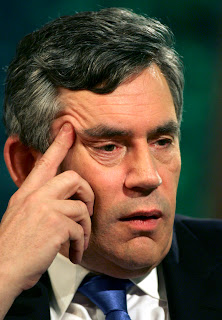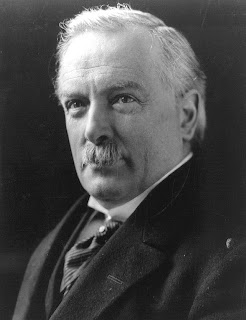 This is a response to the e-book by my friend Jeff Rice "The Next Level - How Not To Be A Caveman In The 21st Century". You have bung old Jeff some money to read it, but I'll summarise: we should aspire to become gods.
This is a response to the e-book by my friend Jeff Rice "The Next Level - How Not To Be A Caveman In The 21st Century". You have bung old Jeff some money to read it, but I'll summarise: we should aspire to become gods.
Jeff is clearly more interested in the wood than the trees, and he starts by looking at life's most startling property - its capacity to manufacture complexity out of simplicity, seemingly flying in the face of entropy. Entropy, the tendency for all things to decay, the force that did for Tom Baker's Doctor Who and the scientific proof of Keynes quote that "In the long run we're all dead" is something to seriously worry about if we're planning on making a permanent mark on the cosmos, so Jeff's right to take an interest.
Next he looks at our psychological heritage from the days of banging stones together on the African plains. It wasn't a black monolith from space that saved our primitive bacon, it was our thumbs and our big brains. Jeff seems to ignore the thumbs bit, but he's very interested in the contents of those Pleistocene brains.
Inside those Cro-magnon skulls was all the hardware needed to live in the modern world. Although they wouldn't have know it, there would have been stone age men wandering around who, if properly trained, could have even done the really tricky stuff even I never actually figured out like flying a jet fighter, passing a Physics exam or separating the laundry into cold and warm wash.
But possibly more important than that was the psychology of the stone age brain. What kept you alive in a world when the next cave might contain a hungry bear wasn't IQ, but instinct. Cave man psychology contained healthy doses of fear and anger, a yearning for happiness and sex, a respect for hierarchy, conformity and status, and a tendency to stereotype others into groups usually labelled "one of us" and "not from round here" (a very strong trait in stone age Glossop). This software kept us alive at night on the dangerous African plain, but in the 21st century it is dooming the planet.
The solution, says Jeff, is to rise above our psychological heritage. We must take control of our evolution and actively promote that part of our ancient psychology that is still useful; our curiosity, our desire for co-operation and our awareness of our place in nature.
To the Ancients a god was an archetype, the best that a Man could be, but no better. Hercules could wrestle Apollo and Odysseus could mistake the words of his wise old councillor for those of Pallas Athene.
Jeff it seems to me, is suggesting we ditch Zeus and his hierarchies, Mars and his war like ways, and all the other useless gods. We should en devour instead to combine the cunning of Odysseus and the wisdom of Athene to move forward to true enlightenment. Entropy be damned!
But lets back pedal a bit. Jeff starts his book with a familiar hierarchy. Starting with subatomic particles he works his way up through organic chemistry to life itself. He then has "the evolution of plants and animals", "ecology", "psychology" and "technology". This is a hierarchy of increased complexity. It is similar to the old school biology books that had "the time of bacteria" followed by "the time of fish", "the time of reptiles" up until "the time of mammals".
But those school books were wrong. Mammals did not follow reptiles by divine decree. Had it not been due to an unfortunate encounter with a passing meteorite it would still be "the time of reptiles". And even when dinosaurs really did rule the earth the life in the seas was still more abundant than that on the land, and then and now it was actually the humble bacteria that made up the majority of the biomass of the earth.
Complexity is always interesting, but not always important, and we should think carefully before putting ourselves at the top of any sort of evolutionary tree. As Douglas Adams said "on the planet Earth, man had always assumed that he was more intelligent than dolphins because he had achieved so much -- the wheel, New York, wars and so on -- whilst all the dolphins had ever done was muck about in the water having a good time. But conversely, the dolphins had always believed that they were far more intelligent than man -- for precisely the same reasons."
Whether you put us or flipper at the top of the complexity ladder, I would agree with Jeff that there is another rung above us. Whether you call it ecology, Earth Systems Science or Gaia, it seems clear that a group of organisms living in harmony is a system more sophisticated than even Fraser Crane.
But what of the next rung? Psychology? Hmm. Is this not just the study of the behaviour patterns or one part of this complex eco-system that we call the Earth? Why should human psychology be considered any more complex, any more interesting or any more relevant than the sex lives of amoeba?
As Popeye the Sailor said "I am what I am what I am". What if, like the famous spinach eater, we are no more able to rise above our psychological inheritance than a randy terrier? What if we are stuck as Cave Men?
Well, it could be worse. First there are the Cave Women (see Rachel Welch above) who speak for themselves - despite millennia of men trying to deny them this right.
Secondly , was the Cave Man life really all that bad? No bosses you couldn't look straight in the eye, gods that were bigger than them but smaller than the world, a paradise to wander around in and best of all three hours work a day.
It seems to me that, rather than make Man fit for the 21st century, we could do a lot worse than make the 21st century fit for Man.
As Earth First! used to say "Back to the Pleistocene"



